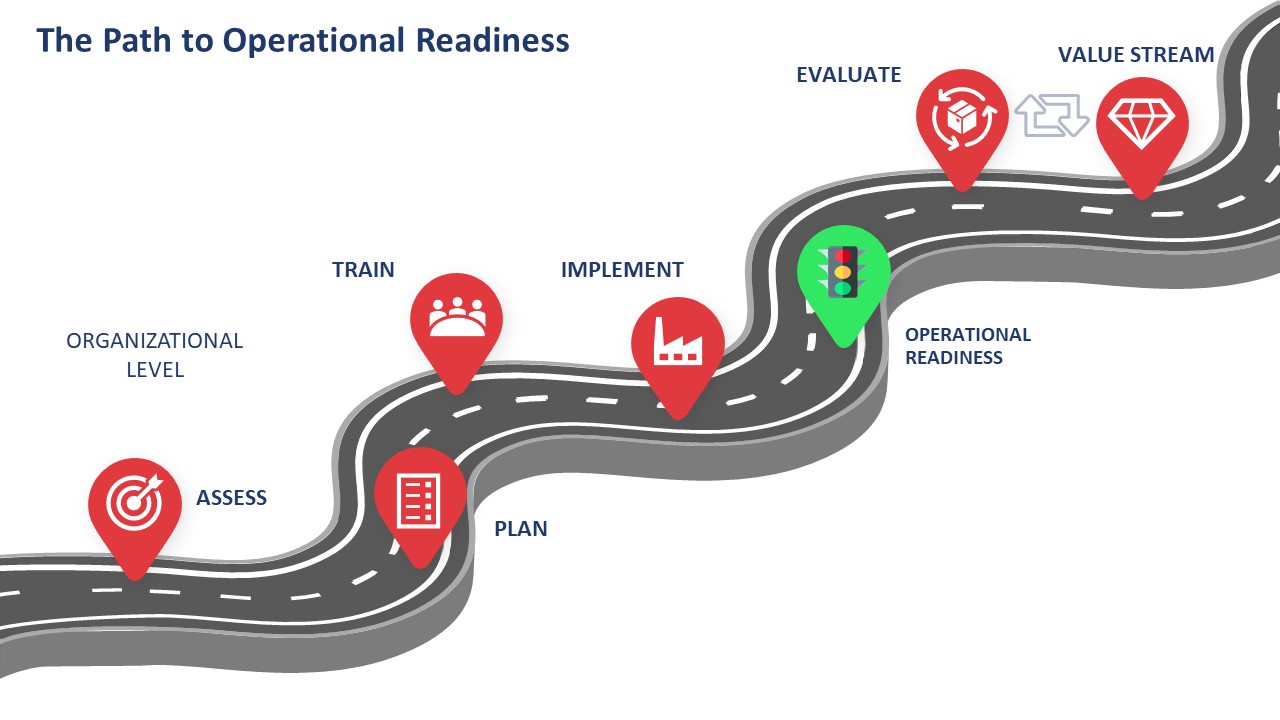In the rapidly evolving biotech industry, achieving operational readiness is crucial for organizations aiming to stay competitive and responsive to market demands. Operational readiness ensures that all systems, processes, and teams are fully prepared to execute their roles effectively. Here’s a strategic approach to guide your biotech organization on this path.
Assess
- Define Clear Objectives The first step towards operational readiness is to define clear and measurable objectives. These objectives should align with your organization's overall goals and provide a roadmap for what needs to be achieved. This clarity helps in setting priorities and allocating resources efficiently.
- Conduct a Thorough Assessment Assess your current operational capabilities to identify gaps and areas for improvement. This assessment should cover all aspects of your operations, including technology, processes, and human resources. Use this information to develop a comprehensive plan that addresses these gaps.
Plan
- Develop a Robust Plan Create a detailed plan that outlines the steps needed to achieve operational readiness. This plan should include timelines, resource allocation, and key performance indicators (KPIs) to measure progress. Ensure that the plan is flexible enough to adapt to changing circumstances.
Train
- Invest in Training and Development Your team is your most valuable asset. Invest in training and development programs to ensure that your employees have the skills and knowledge required to perform their roles effectively. Continuous learning and development are essential for maintaining operational readiness.
Implement
- Implement Technology Solutions Leverage technology to streamline processes and improve efficiency. Implementing the right technology solutions can help automate routine tasks, reduce errors, and provide real-time data for better decision-making. Ensure that your technology infrastructure is scalable and secure.
- Ensure Plant & Production Equipment Readiness Verify that all plant and production equipment are fully operational and meet the required standards. Regular maintenance, calibration, and validation of equipment are essential to prevent downtime and ensure consistent production quality.
- Enhance Operator Readiness Ensure that all operators are adequately trained and certified to handle the equipment and processes. Regular training sessions, simulations, and assessments can help maintain high levels of operator competency and readiness.
- Establish Procedure Readiness Develop and standardize operating procedures to ensure consistency and compliance. Regularly review and update these procedures to reflect best practices and regulatory requirements. Make sure all team members are familiar with and adhere to these procedures.
Evaluate
- Monitor and Evaluate Regularly monitor and evaluate your progress towards operational readiness. Use KPIs and other metrics to track performance and identify areas that need improvement. Continuous monitoring allows you to make data-driven decisions and adjust your strategy as needed.
- Foster a Culture of Continuous Improvement Operational readiness is not a one-time achievement but an ongoing process. Foster a culture of continuous improvement within your organization. Encourage feedback, innovation, and collaboration to ensure that your operations remain agile and responsive to changes.
Potential Challenges
While striving for operational readiness, biotech organizations may face several challenges:
- Regulatory Compliance: Navigating complex regulatory requirements can be time-consuming and resource intensive.
- Resource Constraints: Limited financial, human, or technological resources can hinder the implementation of necessary changes.
- Resistance to Change: Employees and stakeholders may resist new processes or technologies, making it difficult to achieve buy-in and smooth transitions.
- Complexity of Integration: Integrating new systems and processes with existing ones can be complex and may require significant time and effort.
- Maintaining Consistency: Ensuring consistent performance and adherence to new standards across all departments can be challenging.
- Adapting to Market Changes: Rapid changes in the market or industry can require frequent adjustments to operational strategies, which can be difficult to manage.
Achieving operational readiness in the biotech industry requires a strategic and holistic approach. By defining clear objectives, conducting thorough assessments, developing robust plans, investing in training, implementing technology solutions, ensuring plant and production equipment readiness, enhancing operator readiness, establishing procedure readiness, and fostering a culture of continuous improvement, biotech organizations can ensure they are well-prepared to meet the challenges of today's dynamic business environment. Addressing potential challenges proactively will further enhance the likelihood of success.




